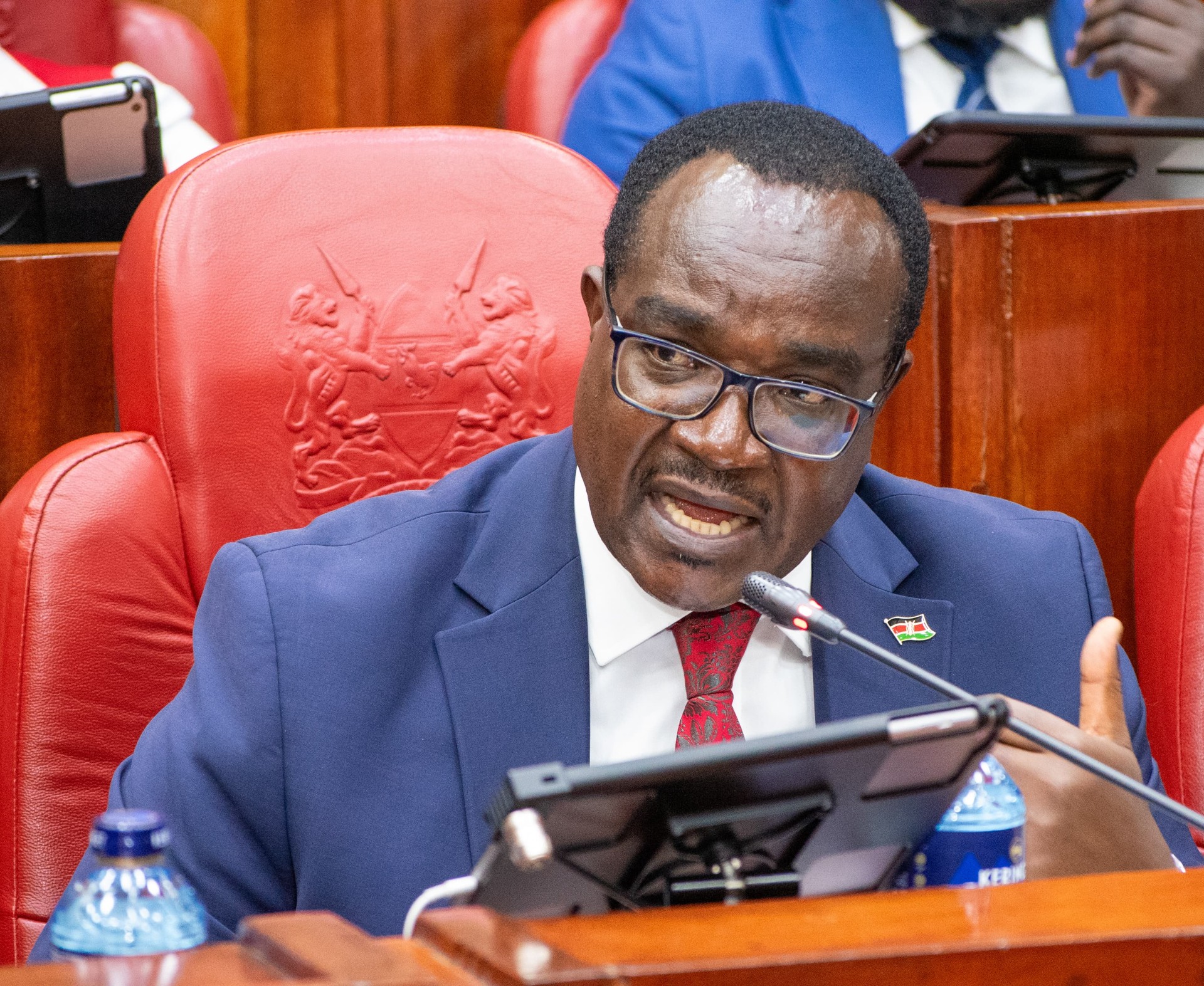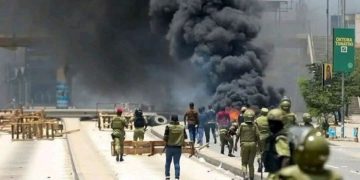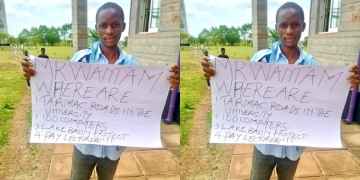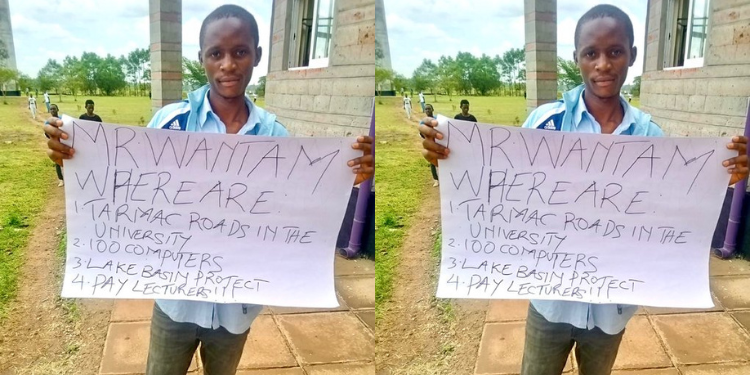A student at Alupe University College in Busia County has been summoned to face disciplinary action after staging a protest during President William Ruto’s visit to the institution.
The student, identified as 24-year-old Erick Maruti, reportedly held up a placard questioning the government’s unfulfilled development pledges to the university.
Maruti’s Protest
During the president’s tour on Friday, October 31, 2025, Maruti displayed a handwritten sign highlighting several grievances, including the absence of tarmacked roads within the campus, the shortage of computers, the delay in completion of the Lake Basin Project, and the delayed payment of lecturers.
It is alleged that the protest drew the attention of security officers accompanying the president, leading to an altercation between the student and members of the presidential guard.
Maruti later claimed that he was assaulted by the security personnel before being escorted away from the event.
He has since been summoned by the university administration to appear before a disciplinary committee for what has been described as misconduct during a presidential function.
Sources within the institution stated that the university’s code of conduct requires students to obtain clearance before engaging in demonstrations or public displays during official events.
President Ruto’s Visit to Alupe University
On the occasion of the presidential working tour of western Kenya, President William Ruto visited Alupe University in Teso South Constituency, Busia County.
During the visit, he inaugurated key facilities at the university and pledged further support to its infrastructure and development agenda.
President Ruto officially opened the university’s academic block and its new library, underscoring the institution’s emerging role in the region.
He also pledged significant funding for student accommodation at the university, directing that approximately Ksh2 billion be allocated for the construction of hostels.
Additionally, he allocated approximately Ksh300 million for the tarmacking of roads within the university and the installation of external lighting.
The visit also coincided with a broader rollout of infrastructure and housing projects in Busia County, including student hostels and affordable housing units.
At Alupe University, a twin-block student hostel project with capacity for about 840 beds was among the initiatives announced.
University Rules and Student Codes of Conduct
Every Kenyan university operates under a Students’ Code of Conduct, which is approved by the University Senate and ratified by the Council.
These codes outline the behavioral expectations of students and the procedures for addressing misconduct, including demonstrations or public expressions within university premises.
Under these regulations, students are allowed to stage peaceful protests, but the process is regulated to maintain order and safety.
Also Read: Govt Orders Immediate Evacuation of KJSEA and KCSE Candidates in Elgeyo Marakwet
Any form of demonstration, picketing, or public assembly must receive prior written approval from the Dean of Students, the Registrar (Academic Affairs), or another designated administrator.
If a protest is planned during an official function, such as a visit by a government dignitary or university ceremony, the institution usually requires advance notification and may restrict demonstrations near event venues for security and protocol reasons.
Students are expressly prohibited from:
- Endangering the safety of others
- Damaging or obstructing university property
- Disrupting academic programmes or official events
- Engaging in conduct that brings the university into disrepute.
Violations of these provisions can lead to disciplinary proceedings before the Students’ Disciplinary Committee, with possible sanctions ranging from warnings and suspension to expulsion, depending on the gravity of the offense.
Also Read: Kenya Power Announces Planned Outages for Maintenance Across Key Regions
In essence, while universities recognise the constitutional right to freedom of expression and peaceful assembly, they require that such activities follow formal notification and approval channels to ensure safety, accountability, and respect for institutional order.
Follow our WhatsApp Channel and X Account for real-time news updates.







































































